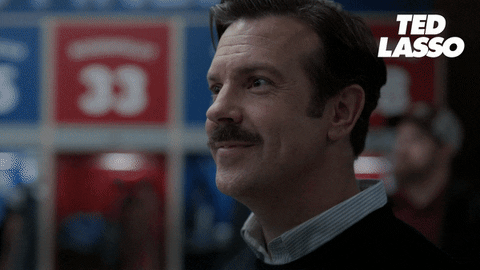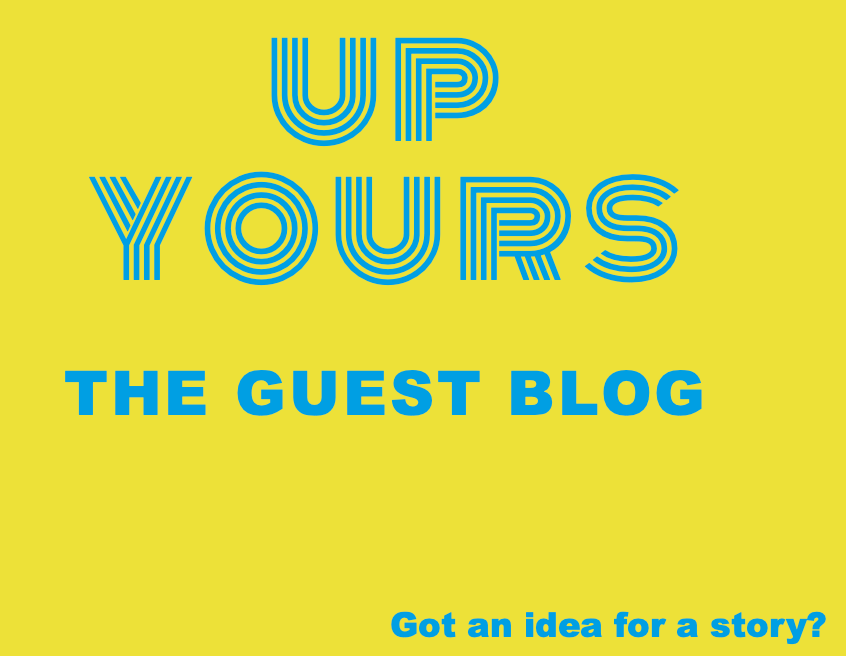What Cannes Lions say about sport; The Rashford conundrum; The problem with Bud's NWSL bit; Why potential is so valuable; Is ambush marketing over; UP Yours
The newsletter of the podcast
UP Coming
We publish two Unofficial Partner podcasts each week, on Tuesday and Friday.
Our entire back catalogue of over 160 sports business conversations are available free of charge here.
Each pod is available on Apple, Spotify, Google, Stitcher and every podcast app.
If you’re interested in collaborating with Unofficial Partner to create one-off podcasts or series, you can reach us by replying to this email.
What Cannes thinks about when it thinks about sport
This week’s Cannes Lions list offers up a benchmark for creativity in sports marketing. The timing is useful, offering a comparison point to the shed load of Euro 2021 sponsorship activations currently doing the rounds, the majority of which is all a bit meh.
Cannes Like
My personal favourite remains Salla 2032 (see previous newsletter). A brilliant central conceit, which is brought to life in an entertaining and surprising way. Given the objective, the execution could have been preachy and boring, but instead it was witty and thought provoking.
Cannes Dislike
Budweiser’s NWSL ‘Future Official Partner’ campaign got a lot of love from the judges. It purports to go to war for women’s sport by raising the issue of the imbalance between men’s and women’s sponsorship revenue.
But…
Rather than being an act of generosity, it feels opportunistic. Bud is seeking to take credit for any incoming sponsor of women’s sport.
Google has moved in to women’s sport for its own reasons, not because Bud told them to. And in reality, by creating fake category inventory, it will probably put off brands. Who wants to spend money just to be seen as part of Bud’s wider schtick?
The other reason I’ve taken against the creative, is because it’s too keen to show its own working out. There’s reams of (very obvious) numbers that read like a sixth former’s Business Studies project, all ‘Look at me and my Googled insights’.
Is ambush marketing over?
Something Henry Chappell said on an upcoming podcast we’ve just recorded around the Euros: He’s not getting pitches from brands to ambush major events anymore.
Why not? Maybe it feels out of the spirit of the post-Covid age, or it looks cheap, or the rights holders have finally policed it out of existence. Maybe.
The alternative Rashford strategy
I love Marcus Rashford and everything he stands for. He is in many ways the perfect role model of our times.
Which is why I wince when I see him front another ad campaign.
The radical thing to do was to go quiet. To leave this summer’s brand money on the table and stand apart from the brand purpose zoo that is the Euros.
Let Mason Mount or Harry Kane fill their boots. They’re just footballers, they’re not important.
By contrast, Rashford’s work has created a once in a generation opportunity, which needs to now be protected from the dicks who want to take him down for embarrassing the government over child poverty.
The brand endorsements - BT, Burberry, Beats etc - just get in the way of Rashford’s own, much more authentic, story. Worse, it can be made to look like the campaigning had a commercial objective, to make him more valuable to partners.
Yes, he and Roc Nation would have left money on the table. The trade-off is that he’s spending some of his hard won brand equity.
And I don’t think it’s worth whatever they’re paying him.
The commercial value of potential, pt 1
The NBA Draft gets twice as many viewers as the average nationally televised game.
From the Not Boring newsletter:
When nothing’s been done, all possibilities are wide open.
This, incidentally, is why it’s easier to raise venture capital with an idea and a deck and maybe a prototype than it is once you have a product in customers’ hands and a little bit of revenue. People fucking love potential.
The commercial value of potential, pt 2
Potential is central to the NCAA’s value. That, and America’s deeply regional sporting and college allegiances.
The players are not the finished article, so as above, ‘all possibilities are wide open’.
What happened?
This week’s court ruling is interesting because of the trade offs it could create.
College sport is worth $18.9bn, up 65% in ten years.
But the athletes don’t get paid, at least not directly.
Looked at one way and it’s another example of sport’s poverty model (see previous newsletter), a version of the gig economy, where young athletes are exploited while the higher ups get rich.
Supreme Court Justice Kavanaugh: ‘The NCAA’s business model would be flatly illegal in almost any other industry in America. Movie studios cannot collude to slash benefits to camera crews to kindle a spirit of amateurism in Hollywood’.
Some consequences, both unintended and just plain old intended
Research suggests a small handful of college athletes will earn between $150,000 and $500,000 a year through central contracts and endorsements.
The best talent will go to a small handful of already rich colleges which will dominate college sport, probably forever.
Every college will invest in the sports programmes that make them money - men’s basketball and football - and away from the rest - all other sports, men’s and women’s.
Bigger question: What is the point of college sport?
Some US colleges already look like a sports franchise with some lectures attached.
Sport’s poverty model, cont’d
Blackstone founder Stephen Schwarzman has been paying US Olympic hopefuls, as philanthropy not as investment. Good story by Sara Germano in The FT
“A lot of these athletes really live hand to mouth, and this is hard to believe, they have to choose between eating and where they can live,” said Schwarzman. “I think the US [Olympic system] is somewhat disadvantaged by virtue of our structure,” Schwarzman said, whereby the sports and athletes who receive funding are largely at the whim of “how popular a sport is and whether it can find donors”.
But don’t add Blackstone to the p/e in sport brigade. “We have no focus on sports as a business,” he said. “It’s not something we’re actively looking at”.
Deeper: The USOC’s slice of the IOC’s central revenue pot has long been contested by other countries.
Under the previous deal, which was set out in an open-ended contract in 1996, the USOC received a 20 per cent share of global sponsorship revenue and a 12.75 per cent share of US broadcast rights deals, which the IOC believe was too excessive. The new deal, which will begin in 2020 and run for 20 years, will see the USOC retain their 20 per cent share of global sponsorship revenue but have its share of US broadcast rights deals cut to seven per cent on any increases in broadcast deals.
The 1-2-3 of Olympian excuses
It’s that time again, as top golfers put out ‘thanks but no thanks’ official statements.
Sergio Garcia: "I love the Olympic Games and it is always an honor to represent Spain, however my No. 1 sporting priority is the Ryder Cup at this moment.
Louis Oosthuizen: "Qualifying for the Olympics is a humbling accomplishment, and there’s no greater honor than representing your country….I am focused on finishing a strong FedExCup season in the States”.
Tyrell Hatton: "I was very much looking forward to representing my country, however, with the ongoing issues relating to COVID-19 and international travel, along with the congested schedule…"
Meanwhile, golf’s Major season is over by the first week in July.
Geoff Shackelford was right (on the State of the Game podcast) when he said that the sport’s entire professional calendar is being upended to accommodate two things golf fans don’t much care about: the Olympics and the FedEx Cup.
Meanwhile, over on UnofficialPartner.com
Ian Thompson calls out sponsorship’s biggest problem.
Agencies, rights owners and brand heads of sponsorship are complicit in a game of validation or justification. It’s in everyone’s interest that a sponsorship investment is seen to be a success.’
Enjoy the Unofficial Partner newsletter? Tell your friends
Subscribe to the Unofficial Partner podcast.
Help us game the Substack algorithm by liking this newsletter and spread the word on social media.
Follow @RichardGillis1 and @PaulPingles (aka the ill-judged Twitter handle of Sean Singleton, the UP co-founder).
Read over 100 gushing five star reviews for UP on Apple Podcasts - click the link to add yours.





